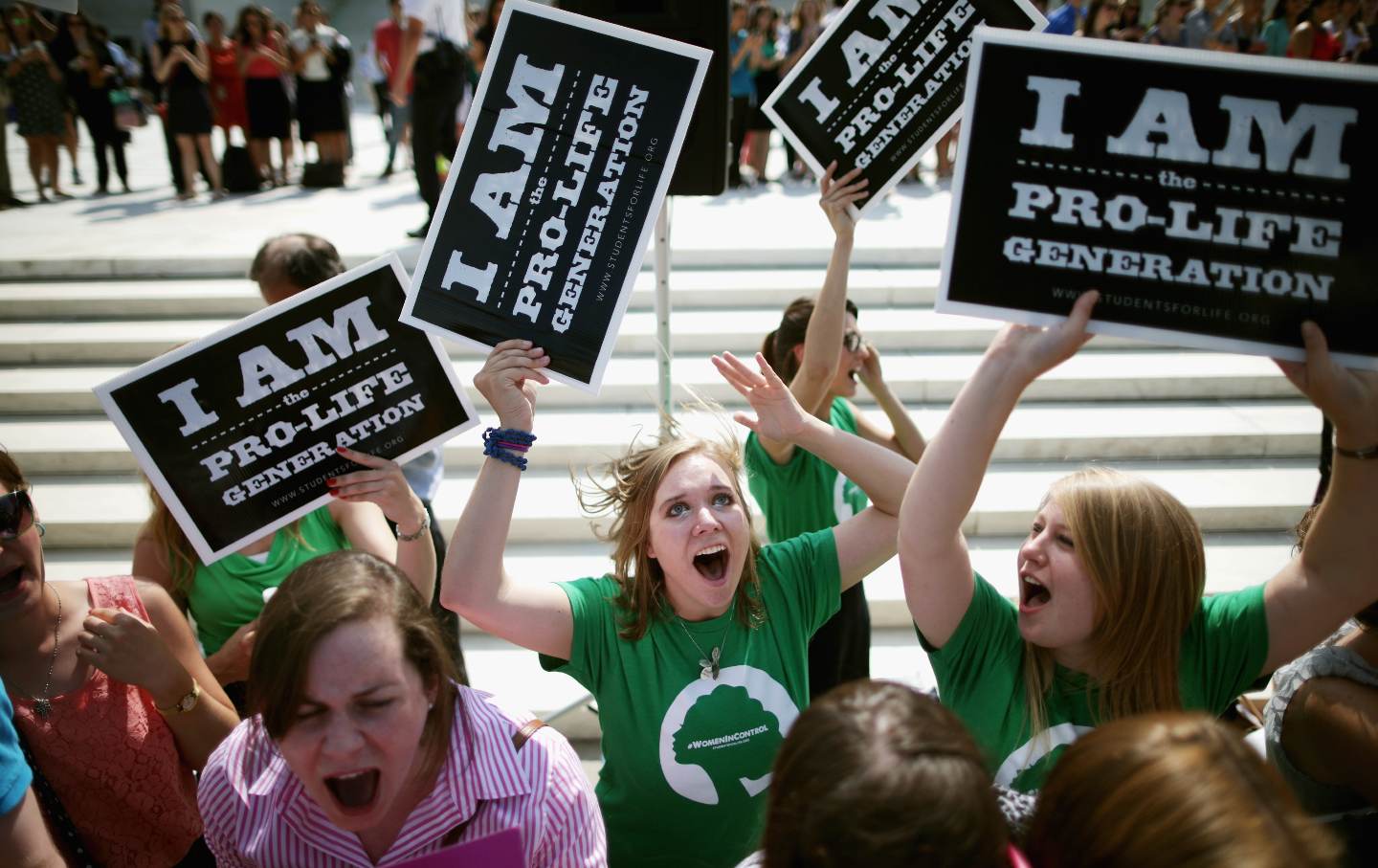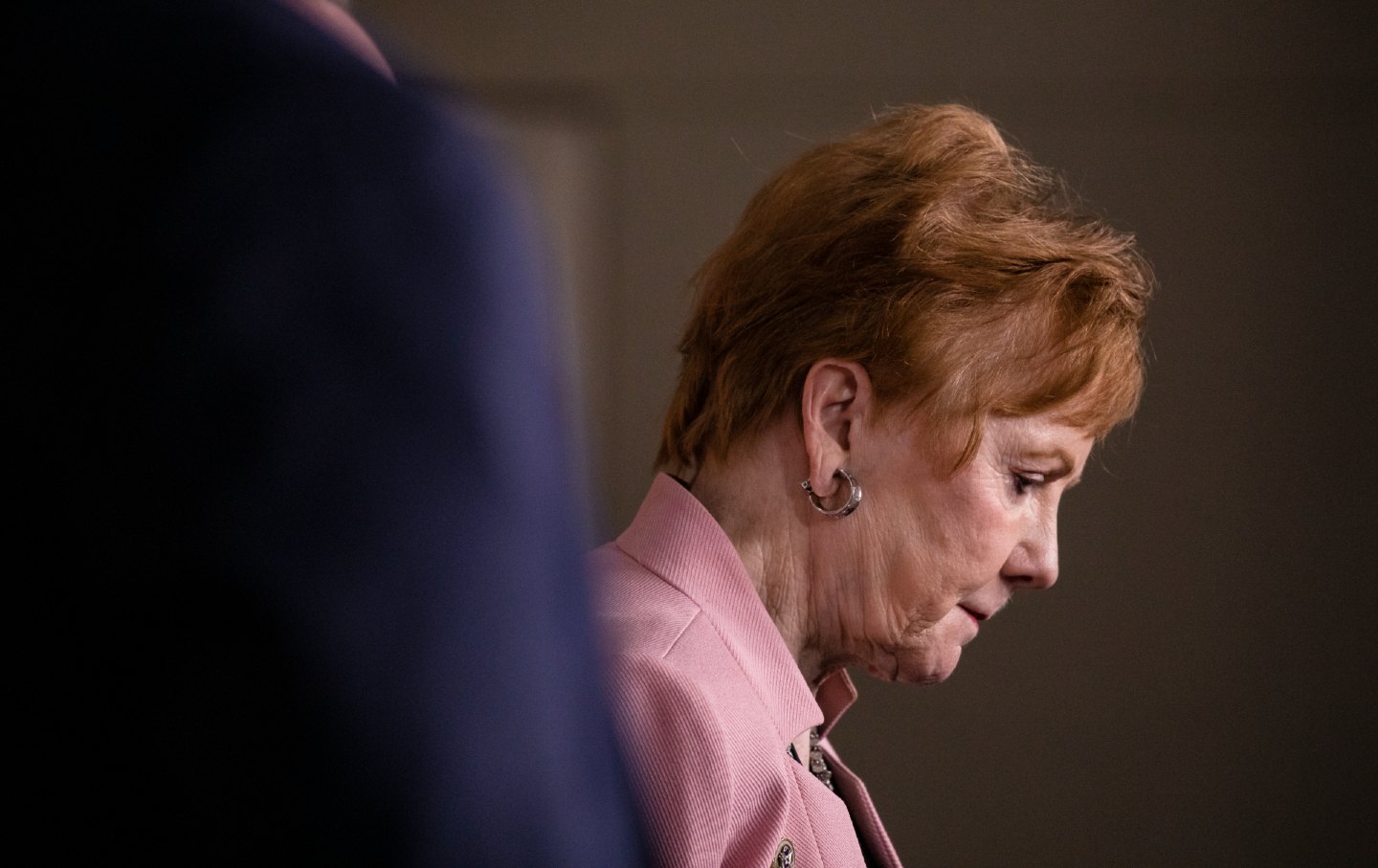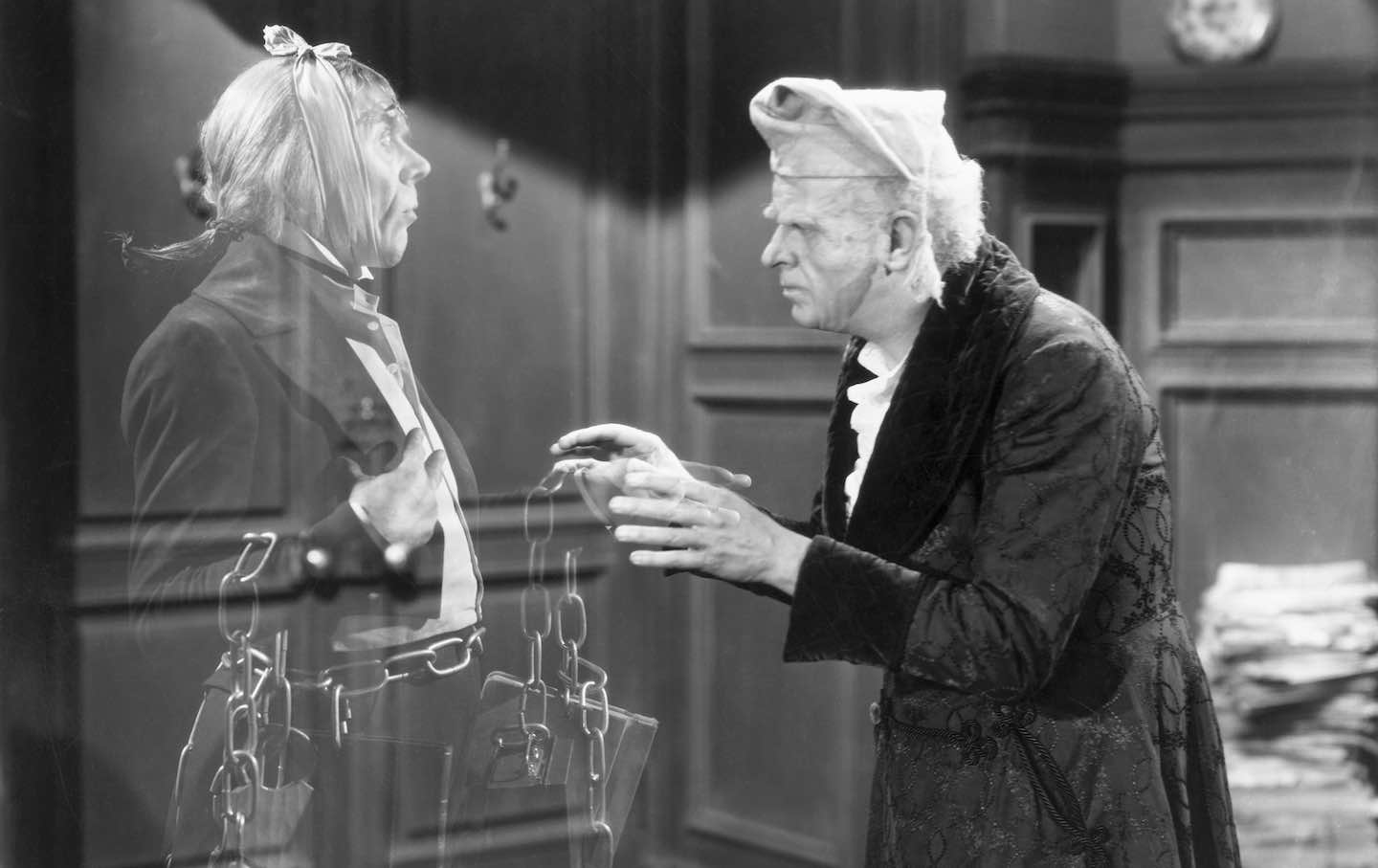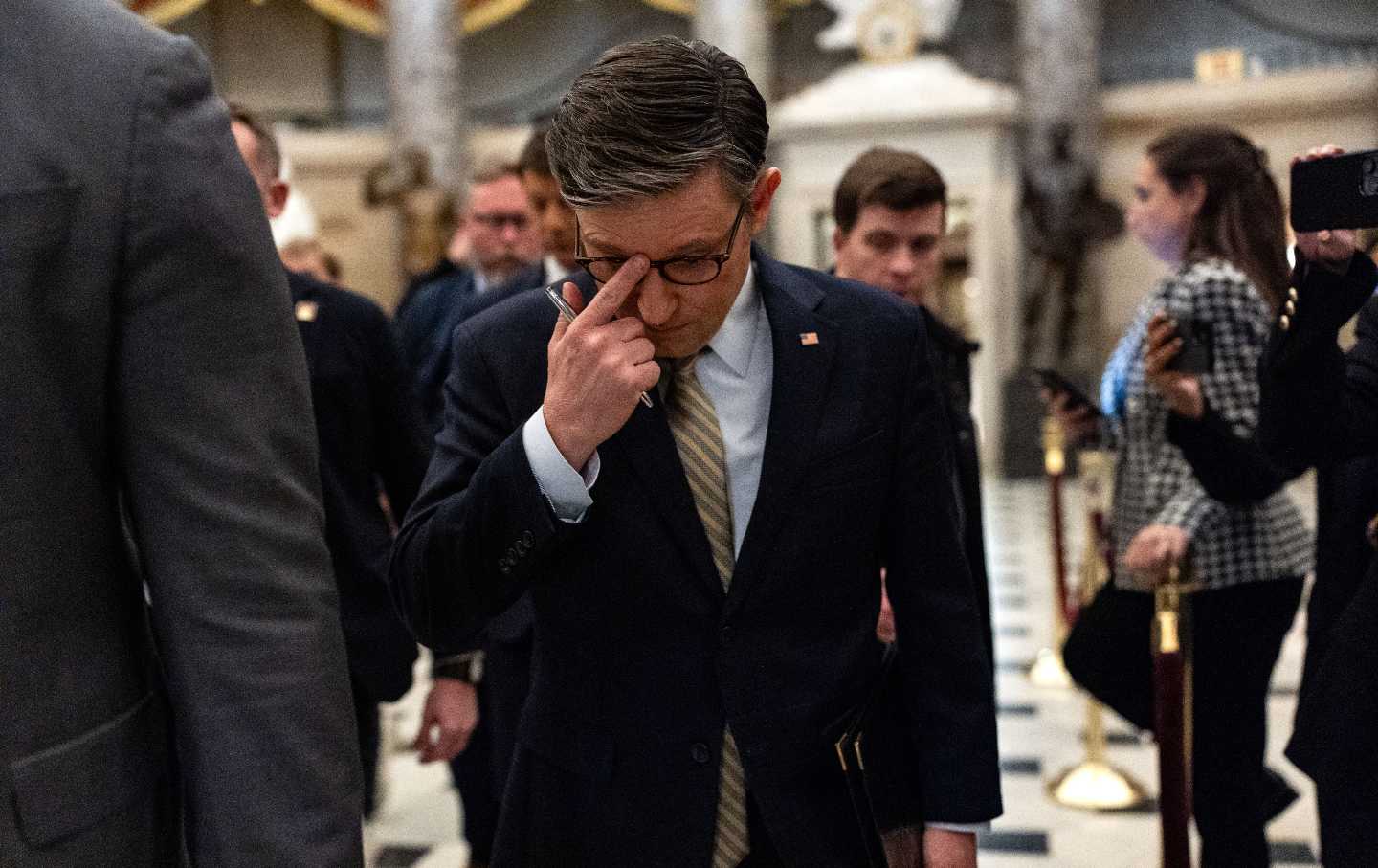Activism
/
StudentNation
/
November 1, 2024
The state has two competing ballot measures on abortion, and anti-choice groups have resorted to increasingly desperate tactics to confuse voters about which is which.

In response to the surge of abortion ballot measures in 2024, anti-choice lawmakers and groups have resorted to increasingly desperate tactics to block their passage.
In a historic move, Nebraskan voters will find two competing abortion measures on their ballots. Under Initiative 434, proposed by Protect Women and Children Nebraska, “unborn children shall be protected from abortion in the second and third trimesters.” The other, Initiative 439, led by Protect Our Rights, states that “all persons shall have a fundamental right to abortion until fetal viability.”
This is not the first time conflicting ballot measures have been brought to voters—but the first time that abortion has been the subject of this odd legal tool. The Nebraska Supreme Court has ruled that the ballot measure with the highest number of votes will be upheld.
Since the landmark Supreme Court decision Dobbs v. Jackson Women’s Health Organization, pro-choice advocates have fought to enshrine the right to abortion within state Constitutions, and the competing ballot measure has only sown confusion among Nebraska voters. In July, over 300 Nebraskans signed affidavits removing their names from a petition circulated by Protect Women and Children supporting an abortion ban, claiming that they were misled into signing. One woman claimed a man had coerced her into signing the petition by calling it a “pro-choice” measure. Other constituents were told that they could sign for their whole family—a violation of Nebraska law.
These tricks have continued throughout the campaign, reaching higher stakes as the election draws near. A recent advertisement put out by Protect Women and Children Nebraska mimics the imagery and language of the pro-choice movement. The advertisements claim that voting for Initiative 434 leads to “scientific standards protecting us,” while Initiative 439 will lead to “vague, unscientific laws inviting government intrusion.” The advertisement concludes with no mention that Protect Women and Children Nebraska supports an abortion ban. In a far contrast, the advertisement put out by Protect Our Rights months earlier states clearly that its motivation is to “end the abortion ban.”
“All they want to do is instill confusion,” Allie Berry of Protect Our Rights, the group behind Initiative 439, says. “They know that the majority of Nebraskans believe in what we’re doing, so they’re just doing everything they can to basically try to take us down, because we do have a popular opinion.”
Current Issue

An October poll showed that a plurality of Nebraskans support both abortion ballot measures—44 percent for Initiative 439 and 46 percent for Initiative 434. Ultimately, the measures need 50 percent or more to pass, and pro-choice advocates are optimistic that they have the support. “The majority of Nebraskans believe that the decisions throughout pregnancy and abortion should be between a woman and her doctor,” Berry says. A poll from 2022 also showed that 60 percent of Nebraskans “strongly” or “somewhat” opposed more restrictive abortion bans.
The outcome of this race has dire consequences for Nebraskans. Currently, Nebraska outlaws abortion after 12 weeks, with the exception of cases of rape or incest, or to save the life of the mother. Lucy, a woman in Nebraska who spoke to The Nation, and her husband had been trying for a second child for a year. During an anatomy scan, a routine procedure that checks on development of the fetus, she was told that her fetus may have a rare genetic disorder and there was a 95 percent chance that it would not survive the pregnancy.
Lucy had to face an impossible decision. She could carry the fetus to term and risk infection or other devastating health effects. Or she could travel to a different state for an abortion. “The doctor was very cold,” Lucy says. “We had just received the worst news, and we were just flatly told, Well, you can go to X, Y and Z.”
The couple weighed their options—they were told to travel to Colorado or Illinois, neighboring states with lenient abortion laws. But Lucy did not want to stay in a cold hotel room, she explains, in an unfamiliar state. So she contacted a family member on the East Coast, and they brainstormed their options. Eventually, Lucy was able to find a clinic that could medically support her. “I had the privilege of being able to leave the state and have the means to leave the state,” she said, “when there’s a lot of women out there who don’t have that.”
“At what point did they determine the mother’s life was at risk?” Lucy says. “Nebraska, they won’t do anything until you’re literally on your deathbed. They won’t until they know 100 percent that you will die.” Due to the vague language of the abortion ban—“saving the mother’s life”—many doctors are hesitant to perform life-saving preventive procedures, for fear of losing their medical license or going to jail.
Lucy ended up going to the East Coast to receive an abortion and stayed with a family member. After a few difficult days, she was able to return to Nebraska. The experience galvanized her to tell her story. “I get extremely frustrated dealing with this, and it makes me want to speak up more and be more truthful,” she says.
According to Berry, the Nebraska case has serious implications for the tactics that anti-abortion groups could use in the future. “If [these tactics are] successful here, they’re going to try this across the states,” said Berry.
Since Dobbs v. Jackson, seven states have introduced abortion-related ballot measures. Abortion access has overwhelmingly prevailed, and not a single anti-abortion amendment has been passed. A recent poll by Gallup found that only 12 percent of Americans believe that abortion should be illegal in all circumstances. This lack of support has led anti-choice lawmakers and groups to use increasingly misleading tactics to push their anti-choice agendas.
In Florida, for example, Governor Ron DeSantis has alleged “voter fraud” and attempted to have signatures revoked from the pro-abortion petition. In Missouri, lawmakers sued the secretary of state for allowing a pro-abortion initiative to appear on voters’ ballots, and failed. In Arkansas, election officials rejected a pro-abortion ballot measure, saying that the group didn’t follow correct procedure, which the group denies.
“The government is willing to go to great lengths to spread misinformation that can be incredibly harmful, especially as it relates to health care, patient care, abortion care, and they’re using taxpayer dollars to do that,” said Natasha Sutherland, director of the Yes on 4 campaign to protect abortion rights in Florida.
Popular
“swipe left below to view more authors”Swipe →
These lawsuits and allegations are just distractions from the real consequences of abortion bans, Sutherland says. It’s unclear how successful these tactics will be—though abortion access legislation is overwhelmingly popular, a recent poll of likely Florida voters falls short of the 60 percent threshold needed to pass the amendment.
When Lucy returned to Nebraska, her community was embroiled in a conflict about abortion rights. Even those closest to her have been misinformed about the ballot measures, Lucy says. “We are not villains,” she emphasizes. “We are women. We are women who have all kinds of stories.”
With a hostile incoming administration, a massive infrastructure of courts and judges waiting to turn “freedom of speech” into a nostalgic memory, and legacy newsrooms rapidly abandoning their responsibility to produce accurate, fact-based reporting, independent media has its work cut out for itself.
At The Nation, we’re steeling ourselves for an uphill battle as we fight to uphold truth, transparency, and intellectual freedom—and we can’t do it alone.
This month, every gift The Nation receives through December 31 will be doubled, up to $75,000. If we hit the full match, we start 2025 with $150,000 in the bank to fund political commentary and analysis, deep-diving reporting, incisive media criticism, and the team that makes it all possible.
As other news organizations muffle their dissent or soften their approach, The Nation remains dedicated to speaking truth to power, engaging in patriotic dissent, and empowering our readers to fight for justice and equality. As an independent publication, we’re not beholden to stakeholders, corporate investors, or government influence. Our allegiance is to facts and transparency, to honoring our abolitionist roots, to the principles of justice and equality—and to you, our readers.
In the weeks and months ahead, the work of free and independent journalists will matter more than ever before. People will need access to accurate reporting, critical analysis, and deepened understanding of the issues they care about, from climate change and immigration to reproductive justice and political authoritarianism.
By standing with The Nation now, you’re investing not just in independent journalism grounded in truth, but also in the possibilities that truth will create.
The possibility of a galvanized public. Of a more just society. Of meaningful change, and a more radical, liberated tomorrow.
In solidarity and in action,
The Editors, The Nation
More from The Nation

The corridors of power increasingly resemble a nursing home—if not a hospice.
Jeet Heer

The president-elect and his un-elected mega-billionaire buddy have gone full Dickensian in their attempts to make greed great again.
John Nichols

Congress narrowly averted a shutdown, but the whole episode offers a sneak peak of the oligarchy in store.
Chris Lehmann



